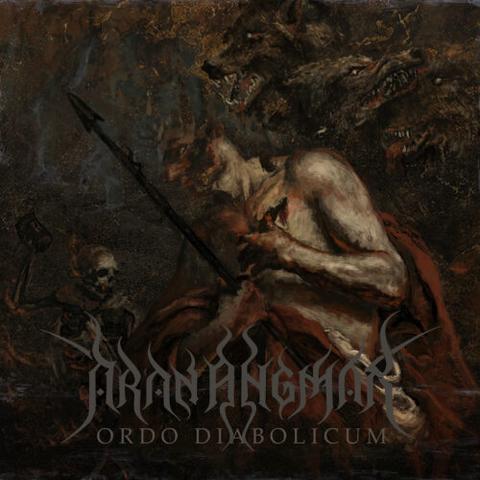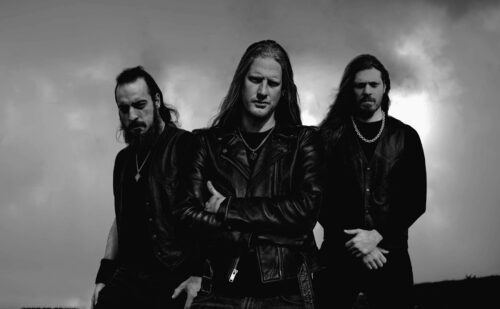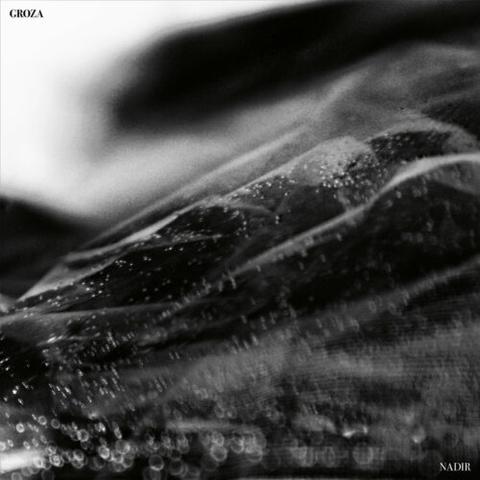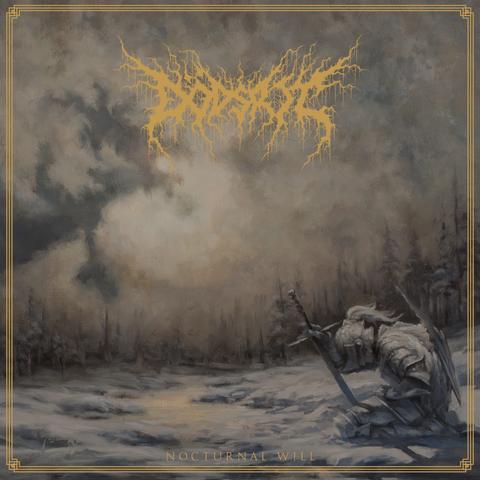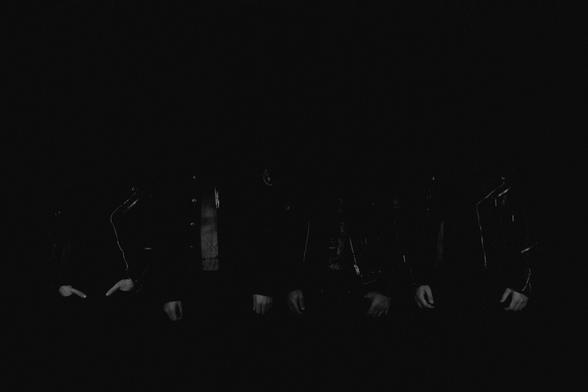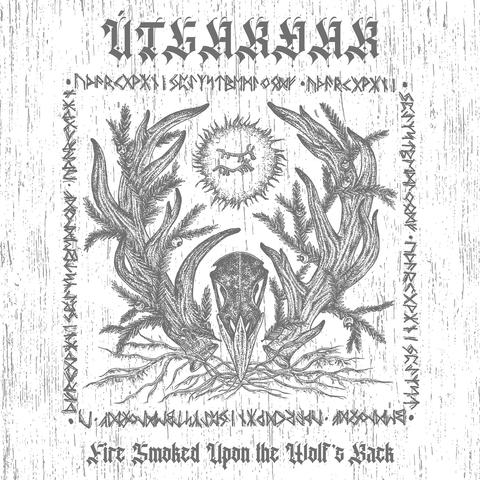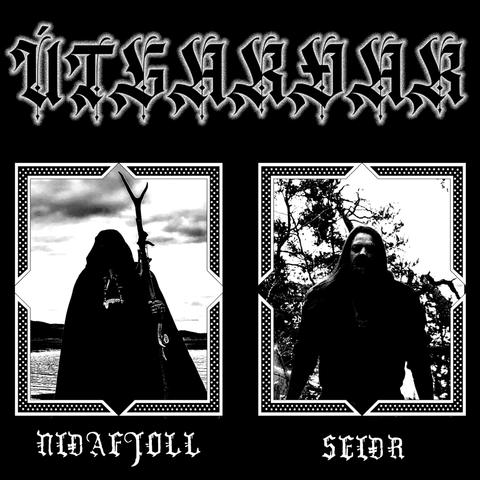Aran Angmar – Ordo Diabolicum Review
By Alekhines Gun
The first time I gave Ordo Diabolicum, the third album from international outfit Aran Angmar, a full listen, I was in the car, ruing an upcoming 12-hour day at work. The sun beat down with mockery, telling me I should be at the beach. The skyline shimmered in radiant beauty, while the birds sang songs about how every day was a day off when you’re unemployed. Suddenly, the absolute bejeebus was scared out of me as an ambulance went screaming by, sirens blasting and throttle abused to such a melodic cacophony that I watched in atypical enthrallment as it careened between the traffic ahead and disappeared behind the second star to the right. Glancing down, I noticed the name of the song escorting the ambulance towards its destination: “Chariots of Death.” I can’t say how much that experience colored my perception of the album, but I can say is this: Aran Angmar delivered an absolute tooth-and-claw-covered beast of a record that is not to be missed.
The Ordo of Diabolicum is immediacy. Across eight tracks, Aran Angmar unleash more hooks than a fisherman’s erotica, with melodic runs, choruses, and catchiness to flay eardrums and boil blood. Eschewing the more tinny, underproduced sound of second wave in favor of a much more immediate, thicccboi Hellenic sound, every cut hits with fist-pumping flair. Using the riff game of older Uada with the vocal stylings of a much more death-inclined band, Aran Angmar offers up an album that, serious artwork aside, sounds far less inclined to the darkness and more bent towards sacrifice and courage. Moments ranging from the vaguely pirate metal crowd calling bop in “Hêlēl ben-Šaḥar”1 to the enticingly heavy carrion splattering chug fest of the title track “Ordo Diabolicum” usher listeners from one slab of glory to another, each delivered with flair and flourish.
Enhancing Ordo Diabolicum is a heavy bent towards Mediterranean and Nordic instrumentation and texture. Surprisingly, this doesn’t come off as a cheap gimmick, but instead lends the choruses and hooks their own flavor. Kickoff track “Dungeons of the Damned” rocks a clean vocal wail of a line2 which has no right to be as infectious as it is, lifting an already mighty chorus to new heights. “Aeon Ablaze” tinkers with Nile-style interludes by way of modern Mystifier ritualistic chants. “Primordial Fire” boasts a host of guest instruments3 which transitions into a bounce reminiscent of Labyrinthus Stellarum doing a folk metal cover. This commitment to diverse instrumentation beyond a mere contrivance for an easy tune pays massive dividends and keeps track after track refreshing and engaging.
All of this would be for naught if the album sounded wack. Mercifully, Aran Angmar avoid such a pitfall, with each performance on Ordo Diabolicum sounding crisp and sharp. The vocals of Lord Abagor are nasty, opting for an unusually guttural approach with a double-tracked higher shriek, channeling the swagger of Amon Amarth (particularly in closing song “Vae Victis”) with the menace of Immolation. Guitar lines from Mahees are piercing and rapturous, with clean tones erupting from hazy blasted trems. Leads are gorgeous and triumphant, with harmonized melodies in “Chariots of Fire” and a beautiful solo in “Hêlēl ben-Šaḥar” standing tall among a litany of sing-along worthy licks and highlights. Alessandro Cupi’s drums are well placed; while never doing anything out of the ordinary, they come with thunder and thunk, adding heft and weight without ever overpowering the music on display.
We’ve arrived at the concluding paragraph, and I suddenly realize I’ve yet to heap scorn on much of anything. I suppose if I squint a bit, some of the atmospheric interludes don’t need to be as long as they are. The intro to “Crown of the Gods” sounds like a bit of an anticlimax compared to the rest of the album’s attention-gathering intros. And yet, I’m not sure I truly believe such ideas. Every time I’ve spun this album I’ve been left with a big dorky grin on my face, invisible oranges clutched firmly in bent palms, utterly and inarguably smitten. Aran Angmar have unleashed an album that has been an absolute joy to listen to, and a first contender for my end-of-year list. Get in on the Ordo while you can.
Rating: 4.0/5.0
DR: 5 | Format Reviewed: 320 kbps mp3
Label: Soulseller Records
Websites: facebook.com/aranangmar | Bandcamp
Releases Worldwide: March 21st, 2025
#2025 #40 #AmonAmarth #AranAngmar #BlackMetal #Immolation #InternationalMetal #LabrinthusStellarum #Mar25 #Mystifier #Nile #OrdoDiabolicum #Review #Reviews #SoulsellerRecords #Uada
